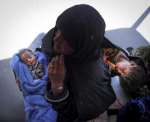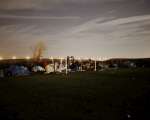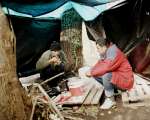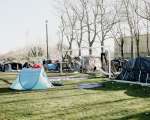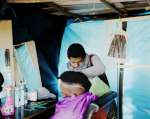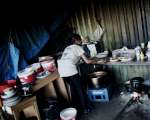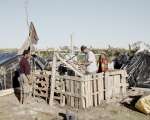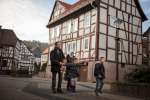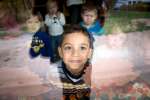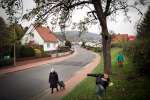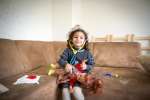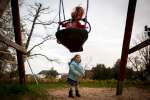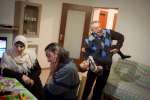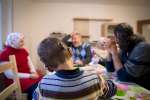- Text size
 |
|  |
|  |
| 
- Français
23,000 refugees flee Syria fighting into Turkey's Sanliurfa region
Briefing Notes, 16 June 2015
This is a summary of what was said by UNHCR spokesperson William Spindler – to whom quoted text may be attributed – at the press briefing, on 16 June 2015, at the Palais des Nations in Geneva.
New fighting in northern Syria has seen 23,135 refugees fleeing across the border into Turkey's Sanliurfa province, according to information received from the Turkish authorities this morning. Some 70 per cent are women and children.
People have been allowed across at the Akcakale crossing and several points between Sanliurfa and Syria's Raqqa province since June 3, when fighting erupted.
Most of the new arrivals are Syrians escaping fighting between rival military forces in and around the key border town of Tel Abyad, which was controlled by militants and faces Akcakale across the border. But they also include so far 2,183 Iraqis from the cities of Mosul, Ramadi and Falujjah. UNHCR field staff say most refugees are exhausted and tired and arrive carrying just a few belongings. Some have walked for days.
UNHCR staff have visited several areas where people were crossing or waiting to cross since the arrivals began. This week, people have been fleeing directly to Akcakale to escape fighting in Tel Abyad. International media are reporting claims by the attacking forces to have captured the town. We are unable to confirm this, although the border was calm at Akcakale this morning.
At Akcakale, which lies some 80 kilometres north of the Syrian city of Raqqa, the Turkish authorities have set up facilities to initially register the new arrivals and provide them with food and water. Children are vaccinated.
Most of the refugees are staying with friends or relatives in and around Akcakale, but some with special needs or no alternative have moved to the refugee camps of Derik and Suruc where they can be cared for.
At the request of Turkey's emergency relief agency, AFAD, UNHCR has provided 27,000 items of children's clothing, 33,000 blankets and 8,000 mattresses. These will be distributed by the Turkish authorities. We are constantly assessing needs.
High Commissioner for Refugees António Guterres has chosen to spend World Refugee Day meeting refugees in Turkey in recognition of its vital role as a host country.
As of latest available data Turkey is hosting 1,772,535 registered Syrian refugees, more than any other in the world. About 259,000 refugees live in 23 camps set up and managed by the government. We urge the international community to continue to help shoulder the burden with Turkey and other neighbouring countries.
For more information on this topic, please contact:
- In Ankara, Selin Unal on mobile +90 530 282 7862
- In Geneva, Leo Dobbs on mobile +41 79 883 6347









